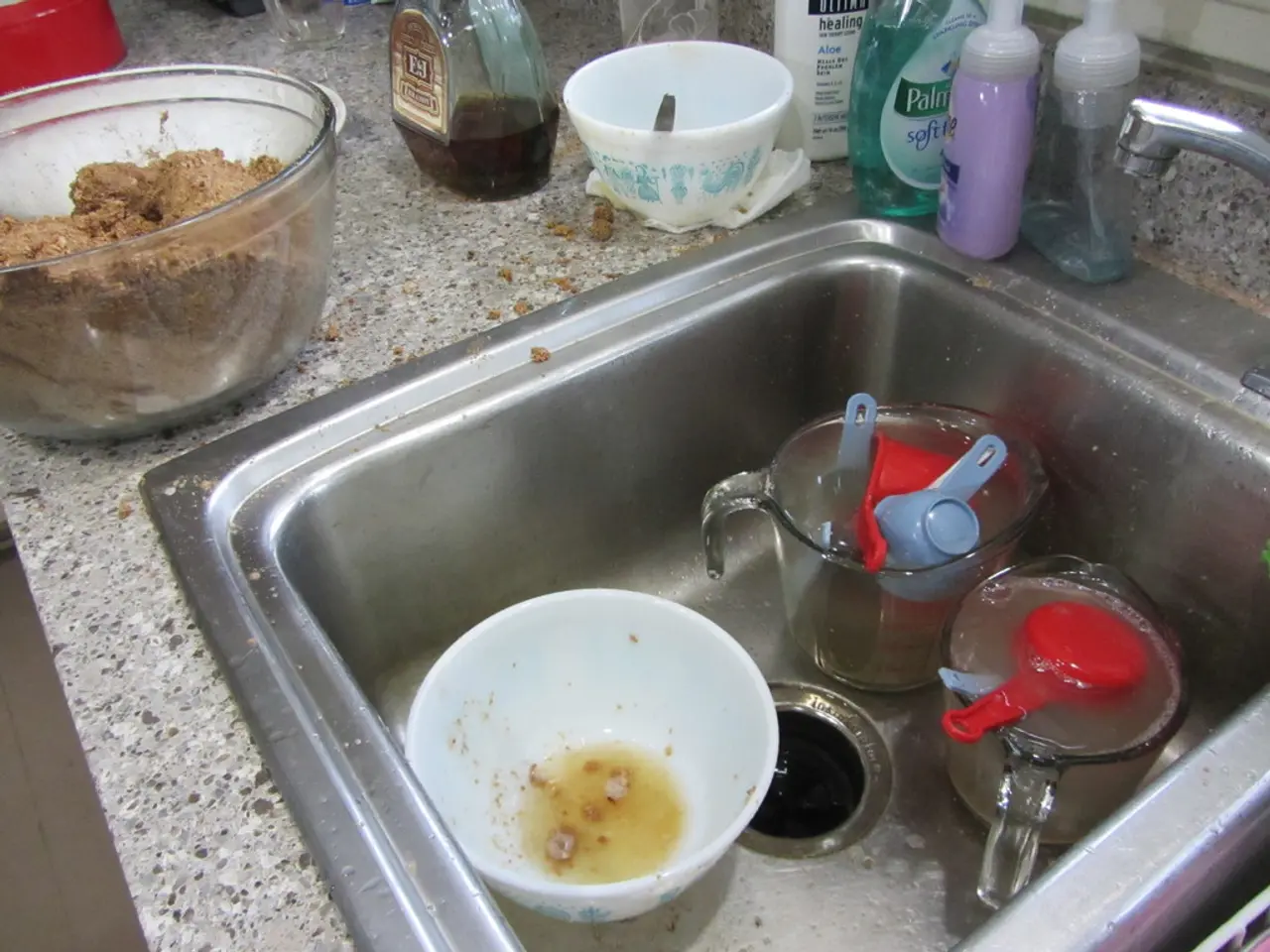Kitchen utensil found to be a prominent transmitter of harmful germs, contrary to popular belief, it's not the chopping board
In the bustling kitchen, tea towels often serve as a reliable ally in our daily food preparation. However, they can also unknowingly become a breeding ground for harmful bacteria like E. coli and Salmonella if not maintained properly. Food hygiene expert Mark McShane warns that these microorganisms can lead to food poisoning, even from clean-looking cutlery dried with the wrong towel.
To prevent the spread of bacteria in your kitchen via tea towels, it is essential to follow some recommended practices. Firstly, wash tea towels frequently, ideally at least once a week, or more often if used heavily or to handle raw meat. This practice helps remove bacteria that can survive on damp towels for up to 48 hours, especially in warm kitchens.
Secondly, replace tea towels daily, especially if they become damp or are used repeatedly without washing. Bacteria thrive in moist environments and can multiply rapidly, posing a significant risk.
Avoid using the same towel for multiple purposes, such as drying hands after handling raw meat and then drying dishes or utensils. This practice leads to cross-contamination, a common cause of food poisoning at home.
Allow towels to dry completely between uses and avoid leaving them bunched up while damp. Prolonged dampness encourages bacterial growth, which increases the risk of contamination.
Expose towels to sunlight when possible, as UV rays help reduce bacterial load.
Maintaining good general kitchen hygiene is also crucial. Disinfect surfaces, faucets, countertops, and other potential contamination points regularly.
Washing tea towels on a hot wash above 60°C can help kill existing bacteria and tackle stains and odours. A washing machine cleanser can ensure tea towels are getting a thorough clean. An eco-friendly laundry detergent is recommended for sensitive skin and as an effective stain remover.
Mark McShane suggests replacing tea towels more frequently during hot weather or heavy cooking days. He also recommends using separate towels for hands and dishes and replacing them daily.
By following these practices—frequent washing, daily replacement, avoiding cross-use, thorough drying, and occasional UV exposure—you can significantly reduce the risk of spreading harmful bacteria in your kitchen via tea towels. A simple switch in habits can prevent weeks of illness, according to Mark McShane.
In addition, a non-toxic spray from Method can be used to cut through germs on kitchen countertops before food prep, providing an extra layer of protection against bacteria. With these tips in mind, you can ensure a clean and safe kitchen for you and your loved ones.
- To ensure a clean and safe kitchen, always wash tea towels at least once a week, and replace them daily if they become damp or are used repeatedly.
- If you handle raw meat with a tea towel, avoid using it to dry dishes or utensils to prevent cross-contamination.
- Maintain good general kitchen hygiene by disinfecting surfaces, faucets, countertops, and other potential contamination points regularly.
- Using UV rays to expose tea towels can help reduce the bacterial load, while washing them on a hot wash above 60°C can kill existing bacteria and tackle stains and odours.
- Incorporate eco-friendly laundry detergent when washing tea towels and use a non-toxic spray like Method to cut through germs on kitchen countertops before food preparation, providing extra protection against bacteria.




